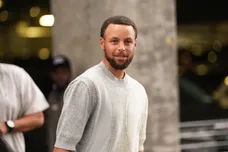The admission of rap lyrics as court evidence in criminal trials has sadly become no less of a threat to hip-hop culture. Despite Democrats' efforts in Congress to protect the Black art form, many fans doubt that their solidarity will actually result in tangible action. Moreover, this and many other topics fall under the magnifying glass of As We Speak: Rap Music On Trial, a documentary premiering on Paramount+ on Tuesday (February 27). In it, Bronx MC Kemba seeks expertise from various politicians, lawyers, academics, industry executives, and of course, rappers. In a clip exclusively shared to Billboard, Killer Mike sums up what makes this practice a misguided and persecutive one.
"They’re not gonna say that the art is a representation of the imagination and the thought," Killer Mike shared. "They’re gonna say it’s you. ‘You are a killer, Mike! And we’re gonna lock your a** up.’ It’s a shame we live in a country where a white woman who killed her husband can write an article called How to [Murder] Your Husband. And that article is not allowed to be used. The prosecutor had to find another way to convict her. But I can say some random s**t on a song and prosecutor can clumsily -– with no rhythm -– can say that s**t to a judge. As if he knows what the f**k I’m talking about or has some type of expertise [on what] I’m talking about."
The Killer Mike-Assisted As We Speak: Q&A With The Documentary's Team
Perhaps the most salient current point when it comes to what Killer Mike is referring to is Young Thug and YSL's RICO trial in Fulton County, Georgia. It's been nearly two years since authorities arrested various of the collective's members, and in the months since, the court allowed on several occasions for prosecutors to point to rap lyrics as evidence of the alleged crimes. This not only draws focus away from the actual accusations, tangible charges, and real evidence, but also sets a dangerous precedent for what art could be accused of. Considering the dire economic conditions, sociocultural narratives, and current exploitation behind much of rap music today, this is a near-blatant attempt to silence creative expression and growth that misconstrues it for outright endorsement.
Meanwhile, a current debacle in the YSL RICO case concerns double standards when related to "gang affiliations" in the media. In fact, much of the evidence presented in this case centered around the collective's image, not individual incidents. As such, As We Speak: Rap Music On Trial, will sadly grow no less relevant in the months to come. Hopefully this wider conversation will lead to more concrete action to protect Black art and hip-hop in the near future. For more news on this topic and the latest updates on Killer Mike, stay posted on HNHH.







